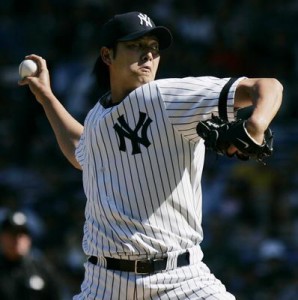With the slew of off-season activity nearly complete, I’ve updated some of the tracking worksheets that I maintain related to the Nats roster. From non-tenders, FA signings and re-signings, trades and Arbitration settlements a lot has changed in terms of the Nats payroll, expected WAR estimates and 40-man options statuses. All these resources are now updated in Google Docs. Links (which should also be along the right-hand side of the page):
Here’s the implications that the last few months have had in each case:
Nats WAR Estimate Impact: We last visited this topic on 1/3/13 and I had a 2013 fWAR best case estimate of 57.6, equating to a 103 win season. Now we’ve replaced Michael Morse‘s 3-win estimate with Adam LaRoche‘s 3.5 win estimate and added in Rafael Soriano‘s 1.2 fWAR estimate and are looking at a fWAR estimate of 59.1 and a 105 win capable team. As with before, this doesn’t mean i’m predicting 105 wins; i’m saying that if everyone plays to their potential and nobody gets hurt, its hard not to see this being a 105 win team as constructed.
Nats 2013 Payroll Impact: When we last visited this topic on 12/3/12, we were sitting on a 2013 estimated payroll of just $88M. Since then, we re-signed LaRoche, signed Dan Haren, stunningly signed Soriano and settled a slew of pre-arbitration settlements (most of which seemed to trend higher than MLB’s estimates for the players). I’m now estimating the Nats 2013 payroll to be $121,823,500 (but see the caveat in the next paragraph). There are still two payroll figures to be announced/decided: Zach Duke‘s 2013 pay has yet to be disclosed (I’m using an estimate of $1.5M) and Jordan Zimmermann was not able to settle with the team ahead of the filing deadline (i’m using an estimate of $4.9M for him). The team filed at $4.6M while Zimmermann filed at $5.8M, meaning they’re $1.2M apart at current. The midpoint would be $5.2M, meaning that the overall payroll could creep even higher and hit $122M.
Coincidentally, I’m not sure how to treat Soriano’s deal from a payroll perspective. 2 years, $28M but as we’ve learned half that money is deferred. The spreadsheet shows it as a $14M aav contract but he’s only being paid $7M this year. With the deferred money, the calculated AAV of the contract is only in the $11M/year range. Cots shows $14M/year right now on its main page, but it hasn’t fixed its internal google XLS’s yet. I think the right way to go would be to show $7M being paid this year and next, and then when the deferred payments kick in show them as the annual $2M payments that they’ll be. So maybe the current payroll isn’t $121M but closer to $114M. I’ll be curious to see how the sites like Cots and Usatoday (the two main sites that publish team payroll figures) treat this contract going forward.
Option Status: We last visited this topic on 11/14/12, before the non-tenders of Flores, Lannan and Gorzelanny, before the Rule-5 additions and before all the signings. New signings Haren and Soriano are both 5+ year vets so Options don’t matter. Interestingly, Duke has 6+ years of service time and signed a MLB deal, meaning he cannot be assigned to AAA withouth is consent and/or passing through waivers; the team is clearly counting on him to be in the MLB bullpen the whole year. The most interesting options cases now belong to Ryan Mattheus and Craig Stammen, both of whom have options and both of whom (despite Stammen’s new 2 year deal) could be affected by the crowded bullpen. I think we’re all under the assumption that Christian Garcia is starting the year in AAA; he has 3 options to use and may be on the train back and forth often in 2013. I remain curious as to what the team will do with Carlos Rivero, who hit well in AAA and even better in winter ball, but has no options remaining and doesn’t have a single day of MLB service time.
Lastly (unrelated to the Nats), I’ve updated somewhat my “Best versus Winner” xls with the results from the NFL playoffs over the weekend. For the 9th straight year in the NFL, the Superbowl winner will NOT be the team that also had the best regular season record. This year, Denver and Atlanta shared the best regular season record and both were eliminated before reaching the Superbowl. I keep track of this particular finding for all four major sports and generally have found that very infrequently does the team with the best record in any sport actually take the year end title any more. Baseball has only seen it a few times in the last 20 years.
I’ve got a draft post that has an overview of all the random documents and spreadsheets that I’ve uploaded to Google Docs over the years (including the 4 discussed in this post). I”ll publish it during a slow period this winter.

